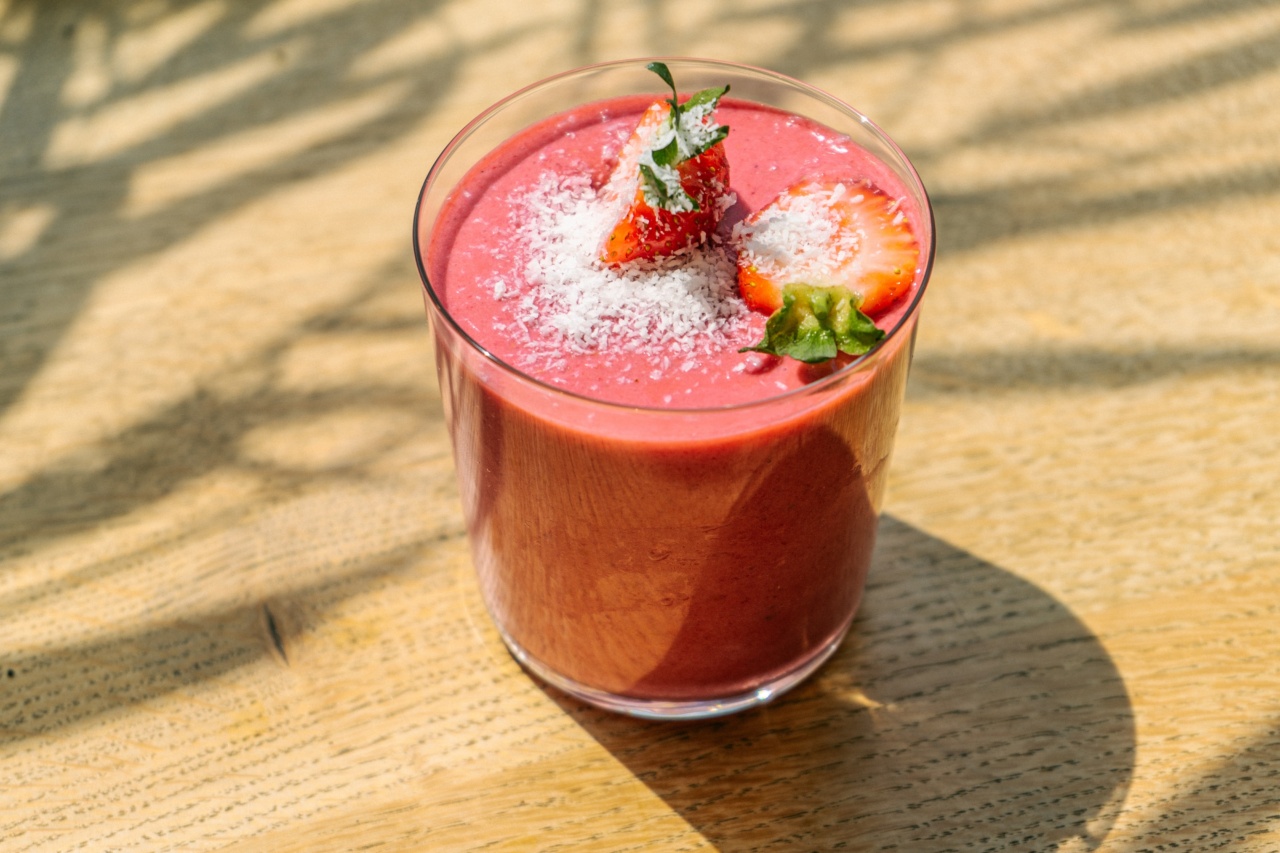When it comes to taking a shower, many people don’t think twice about the temperature of the water. Some prefer a hot, steamy shower to help them relax, while others enjoy the invigorating sensation of a cold shower to wake them up.
However, did you know that choosing between hot or cold showers can actually have a significant impact on your overall health? In fact, both options offer unique benefits and potential risks. Let’s explore the advantages and disadvantages of hot and cold showers, so you can make an informed decision for the betterment of your health.
1. Benefits of Hot Showers for Your Health
Hot showers have been enjoyed by individuals for centuries, not only for comfort but also for their potential health benefits. Here are some reasons why you might consider hopping into a steamy shower:.
Relaxation and Stress Relief
One of the primary benefits of hot showers is their ability to promote relaxation and relieve stress. The warm water can soothe your muscles, ease tension, and create a sense of calmness.
This can be particularly beneficial at the end of a long and tiring day, helping you unwind and promote better sleep.
Improved Blood Circulation
Hot showers are known to dilate blood vessels, improving blood circulation throughout your body. This can have several positive effects, including better oxygen and nutrient supply to your organs and tissues.
Improved blood flow can also promote faster healing and recovery from injuries.
Opening Up Airways and Respiratory Health
If you suffer from congestion, allergies, or respiratory issues, a hot shower can provide relief. The steam from the hot water helps to loosen mucus, clear nasal passages, and soothe irritated airways.
This can help you breathe more easily, especially during cold and flu seasons.
Promoting Muscle Recovery
If you’re an athlete or engage in regular exercise, hot showers can aid in muscle recovery. The warmth from the water helps to relax your muscles, reduce inflammation, and alleviate soreness.
Additionally, hot showers can increase blood flow to your muscles, supplying necessary nutrients and removing waste products.
2. Advantages of Cold Showers for Your Health
Cold showers may not sound as inviting or comforting as hot showers, but they offer numerous benefits for your health. Here’s why you might want to consider turning down the temperature:.
Increased Alertness and Energy
One of the biggest advantages of cold showers is their ability to wake you up and boost your energy levels. The sudden change in temperature stimulates your body, increases your heart rate, and activates your nervous system.
This can leave you feeling refreshed, alert, and ready to take on the day.
Healthier Skin and Hair
Cold showers can have a positive impact on your skin and hair health. While hot water can strip away natural oils from your skin and hair, cold water helps to seal the pores and tighten the skin.
This can reduce the chances of acne breakouts and promote healthier, glowing skin. In addition, cold water can make your hair appear shinier, as it smooths the hair cuticles.
Strengthened Immune System
Cold showers can give your immune system a much-needed boost. When your body is exposed to cold temperatures, it triggers the production of more white blood cells, which are essential for fighting off infections and diseases.
Regular cold showers can enhance your body’s natural defense mechanisms and help you stay healthier.
Increase in Metabolism
If you’re looking for a natural way to give your metabolism a boost, cold showers can help. When your body is exposed to cold water, it has to work harder to maintain its core temperature, burning more calories in the process.
While cold showers alone won’t replace a healthy diet and regular exercise, they can be a useful addition to a weight management plan.
3. Potential Risks to Consider
While both hot and cold showers offer numerous health benefits, it is important to be aware of potential risks as well:.
Hot Shower Risks
While hot showers can be relaxing and have several advantages, there are a few precautions to keep in mind:.
Dehydration
Hot water can strip away the natural oils from your skin, leading to dryness and dehydration. Make sure to moisturize your skin properly after a hot shower and consume enough water throughout the day to maintain proper hydration levels.
Increased Blood Pressure
Hot showers may cause a temporary increase in blood pressure in some individuals. If you have any pre-existing cardiovascular conditions or high blood pressure, it’s important to consult with your doctor before regularly indulging in hot showers.
Burns and Scalding
Care should be taken to avoid using excessively hot water, as it can lead to burns and scalding. It’s essential to test the water temperature before stepping into the shower and make sure it’s suitable for your comfort and safety.
Cold Shower Risks
Cold showers, although generally safe for most individuals, may not be suitable for everyone:.
Dangerously Low Body Temperature
If you have a medical condition that affects your body’s ability to regulate temperature, such as hypothyroidism or Raynaud’s disease, cold showers may cause your body temperature to drop too low.
It’s best to consult with your healthcare provider before incorporating cold showers into your routine.
Increased Stress on Heart
Cold showers can temporarily increase heart rate and blood pressure, which may pose risks for individuals with underlying cardiovascular issues.
If you have any heart-related concerns, it’s advisable to seek medical advice before regularly taking cold showers.
4. Finding the Right Balance
While hot and cold showers have their own unique benefits and risks, finding the right balance is key. You don’t have to stick to only one temperature; alternating between hot and cold showers can offer the best of both worlds.
Consider starting with a warm shower to help you relax and cleanse your body. As you approach the end of your shower, gradually decrease the temperature to cold or cool.
This contrast bathing technique can provide a plethora of benefits, such as improved blood circulation, enhanced immune system response, and healthier skin and hair.
Remember to listen to your body and adjust accordingly. If you feel uncomfortably hot or cold, make the necessary adjustments to ensure your shower temperature is safe and enjoyable.
Conclusion
Choosing between hot or cold showers can have a significant impact on your overall health. Both options offer unique benefits, including relaxation, improved blood circulation, muscle recovery, and enhanced immune response.
However, it’s essential to be mindful of potential risks, such as dehydration, increased blood pressure, and lowered body temperature.
The key is finding the right balance and listening to your body’s needs. Alternating between hot and cold showers, or opting for a lukewarm shower, can help you reap the benefits of both temperature extremes.
Ultimately, the choice is yours, and it’s essential to prioritize your comfort and well-being when deciding on your shower routine.






























